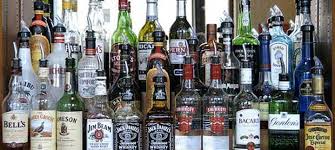
According to new figures, there has been a 41 per cent increase in the UK in the number of trademarks that were registered for spirits and liqueurs. This figure is reflective of the rising demand for artisanal products and the demand for gin among consumers.
Research published on Monday by the law firm RPC shows that more disputes involving “copycat” name claims are being triggered by the scale of innovation being undertaken by large spirit brands and supermarkets in their efforts to manufacture unusual flavours and colours of alcohol drinks.
Compared to 1,570 in 2016, 2,210 trademarks registered in 2017 in the country. the report said that this number had grown by 84 per cent in the last five years with 1,199 registrations in 2013. And in 2017 alone, 39 artisanal gin distilleries were opened in the UK.
The revival of demand for4 gin which started in 2009 has bene accelerated by flavoured gins. The trend began first with the launch of the Sipsmith craft brand and followed by the launch of dozens of other local distilleries.
With a sale growth of 22 per cent, gin turned out to be the fastest growing segment throughout western Europe, said the drinks giant Diageo last week. A p[ink gin was launched by the Gordon’s brand of the company last summer taking advantage of the demand for colorful drinks and cocktails by the Instagram inspired generation.
“Brands are rushing to register spirit trademarks as the industry goes through a period of rapid innovation,” said Ben Mark, legal director at RPC. “Many drinks companies are adopting a strategy of launching multiple sub-brands and varieties of their drinks in order to meet consumer and retailers’ demands for limited runs and niche drinks. It is a big departure from 15 years ago, when drinks companies would concentrate their marketing spend on just a few core brands and products.”
The RPC partner Ciara Cullen added that there has however been a number of counter claims in the sector amidst the rapid expansion. “More products inevitably means more trademarks. As a result, competition among spirits producers is getting increasingly intense. As more businesses seek to establish and protect a strong brand identity amid a proliferation of launches of similar products, the chances of branding clashes and copycat claims is high.”
A legal warning against a Birmingham pub was issued by the Scottish craft beer company BrewDog recently and sought to stop the pub from sharing its name with BrewDog’s gin brand Lone Wolf. The suit was however later withdrawn.
In another example, following a complaint by the absinthe manufacturer La Fee, authorities refused a trademark application of Bacardi for its Angel’s Envy whisky because the former also owns a product called Envy.
(Source:www.theguardian.com)
Research published on Monday by the law firm RPC shows that more disputes involving “copycat” name claims are being triggered by the scale of innovation being undertaken by large spirit brands and supermarkets in their efforts to manufacture unusual flavours and colours of alcohol drinks.
Compared to 1,570 in 2016, 2,210 trademarks registered in 2017 in the country. the report said that this number had grown by 84 per cent in the last five years with 1,199 registrations in 2013. And in 2017 alone, 39 artisanal gin distilleries were opened in the UK.
The revival of demand for4 gin which started in 2009 has bene accelerated by flavoured gins. The trend began first with the launch of the Sipsmith craft brand and followed by the launch of dozens of other local distilleries.
With a sale growth of 22 per cent, gin turned out to be the fastest growing segment throughout western Europe, said the drinks giant Diageo last week. A p[ink gin was launched by the Gordon’s brand of the company last summer taking advantage of the demand for colorful drinks and cocktails by the Instagram inspired generation.
“Brands are rushing to register spirit trademarks as the industry goes through a period of rapid innovation,” said Ben Mark, legal director at RPC. “Many drinks companies are adopting a strategy of launching multiple sub-brands and varieties of their drinks in order to meet consumer and retailers’ demands for limited runs and niche drinks. It is a big departure from 15 years ago, when drinks companies would concentrate their marketing spend on just a few core brands and products.”
The RPC partner Ciara Cullen added that there has however been a number of counter claims in the sector amidst the rapid expansion. “More products inevitably means more trademarks. As a result, competition among spirits producers is getting increasingly intense. As more businesses seek to establish and protect a strong brand identity amid a proliferation of launches of similar products, the chances of branding clashes and copycat claims is high.”
A legal warning against a Birmingham pub was issued by the Scottish craft beer company BrewDog recently and sought to stop the pub from sharing its name with BrewDog’s gin brand Lone Wolf. The suit was however later withdrawn.
In another example, following a complaint by the absinthe manufacturer La Fee, authorities refused a trademark application of Bacardi for its Angel’s Envy whisky because the former also owns a product called Envy.
(Source:www.theguardian.com)














